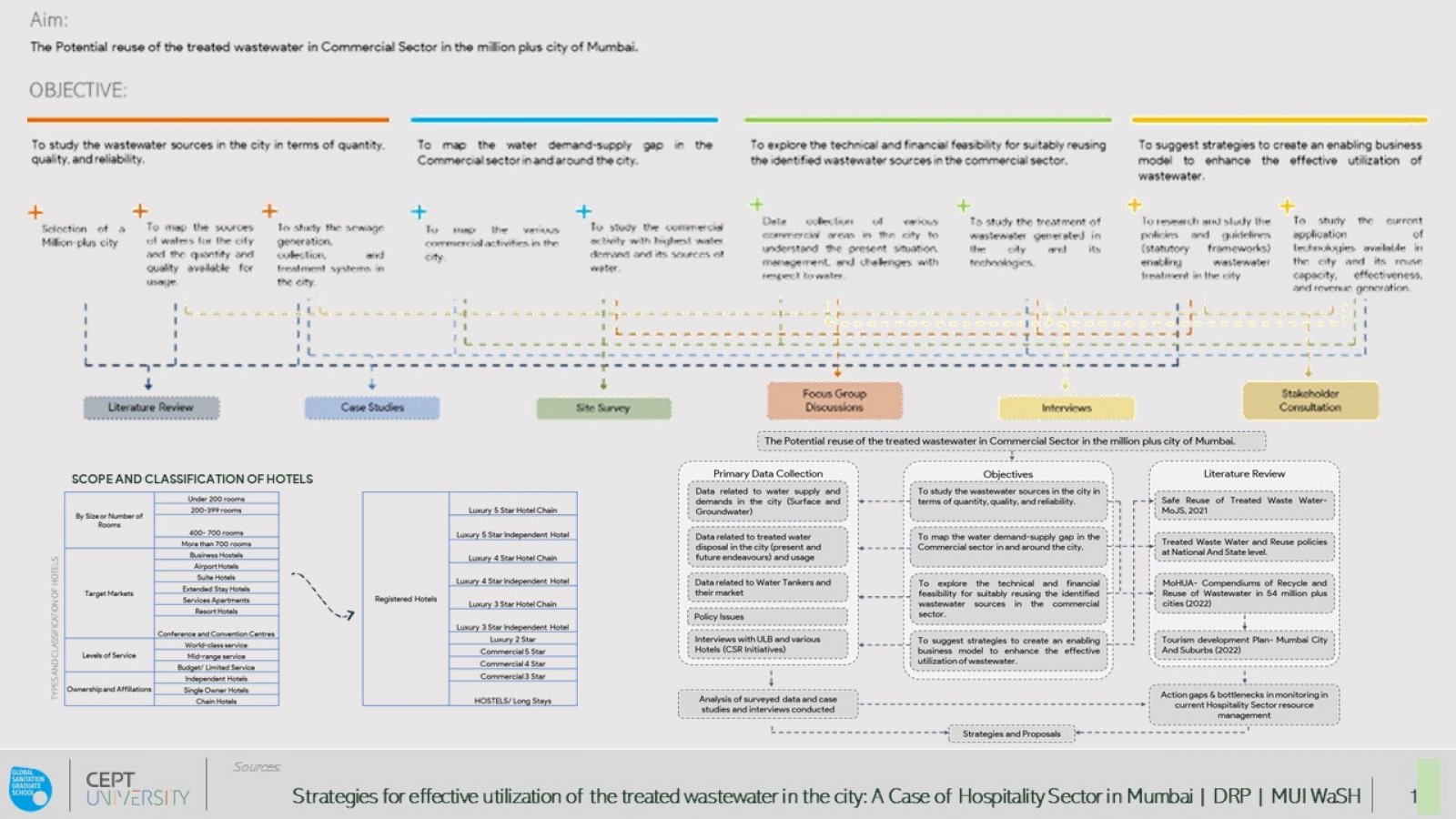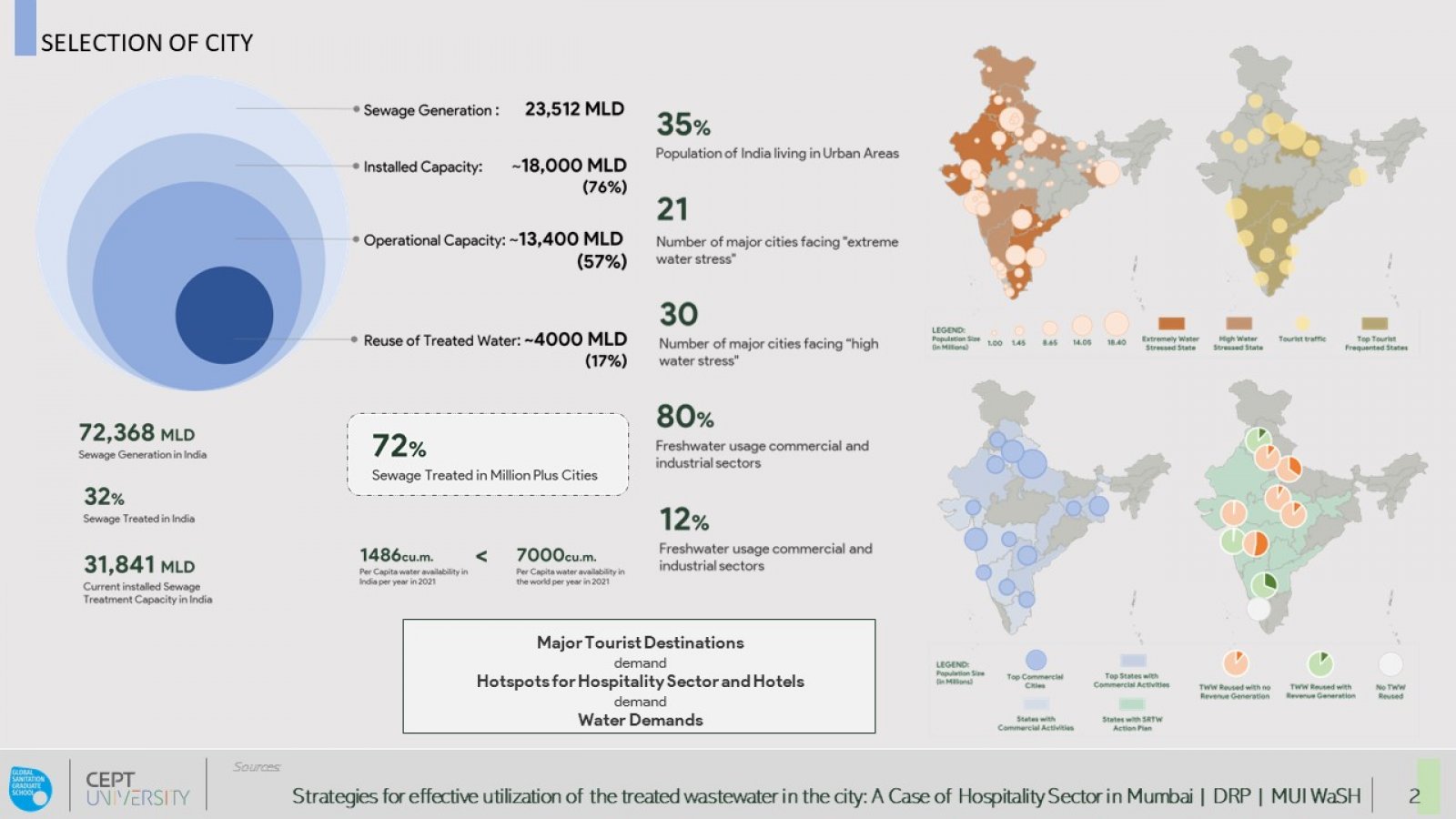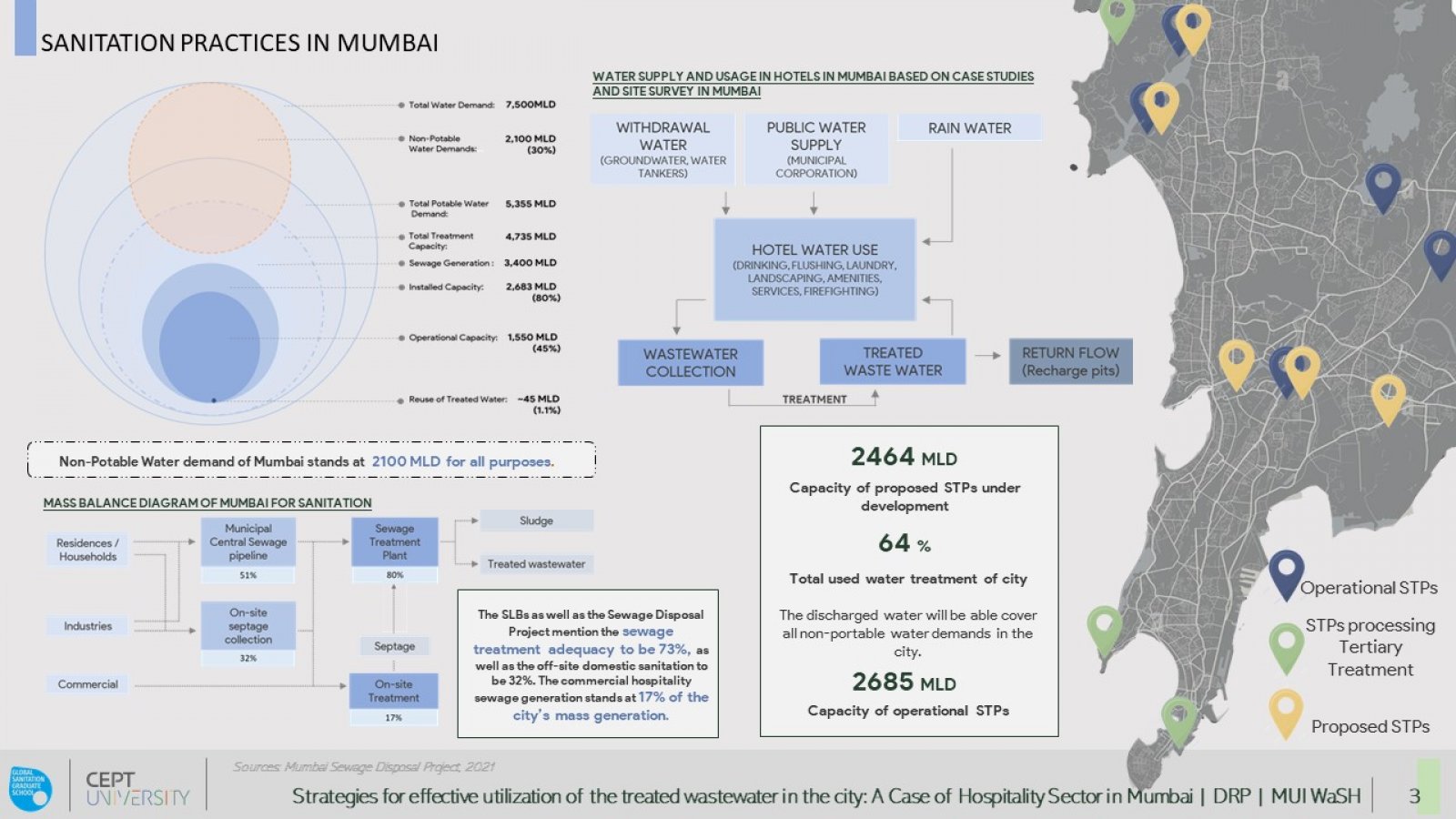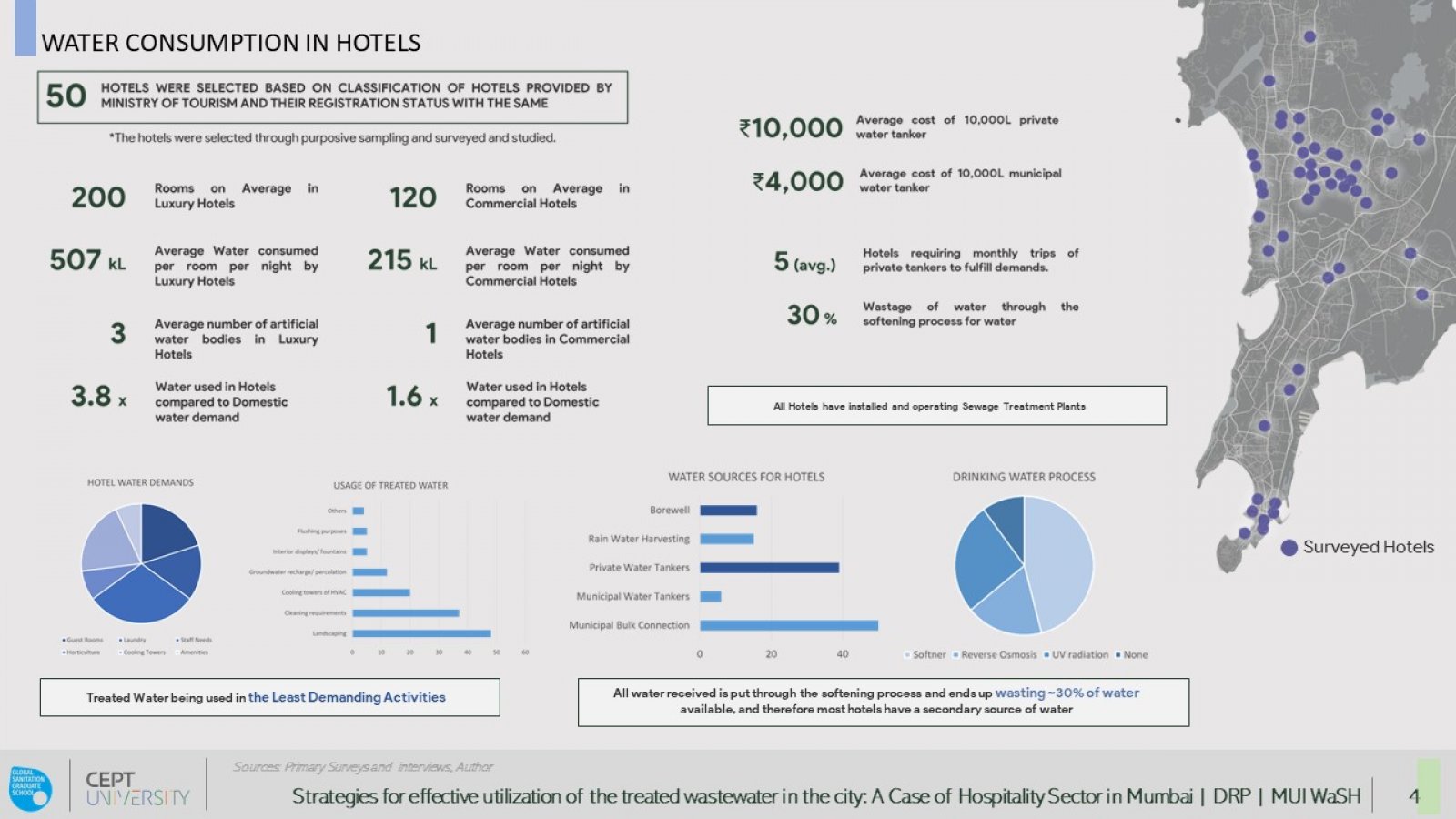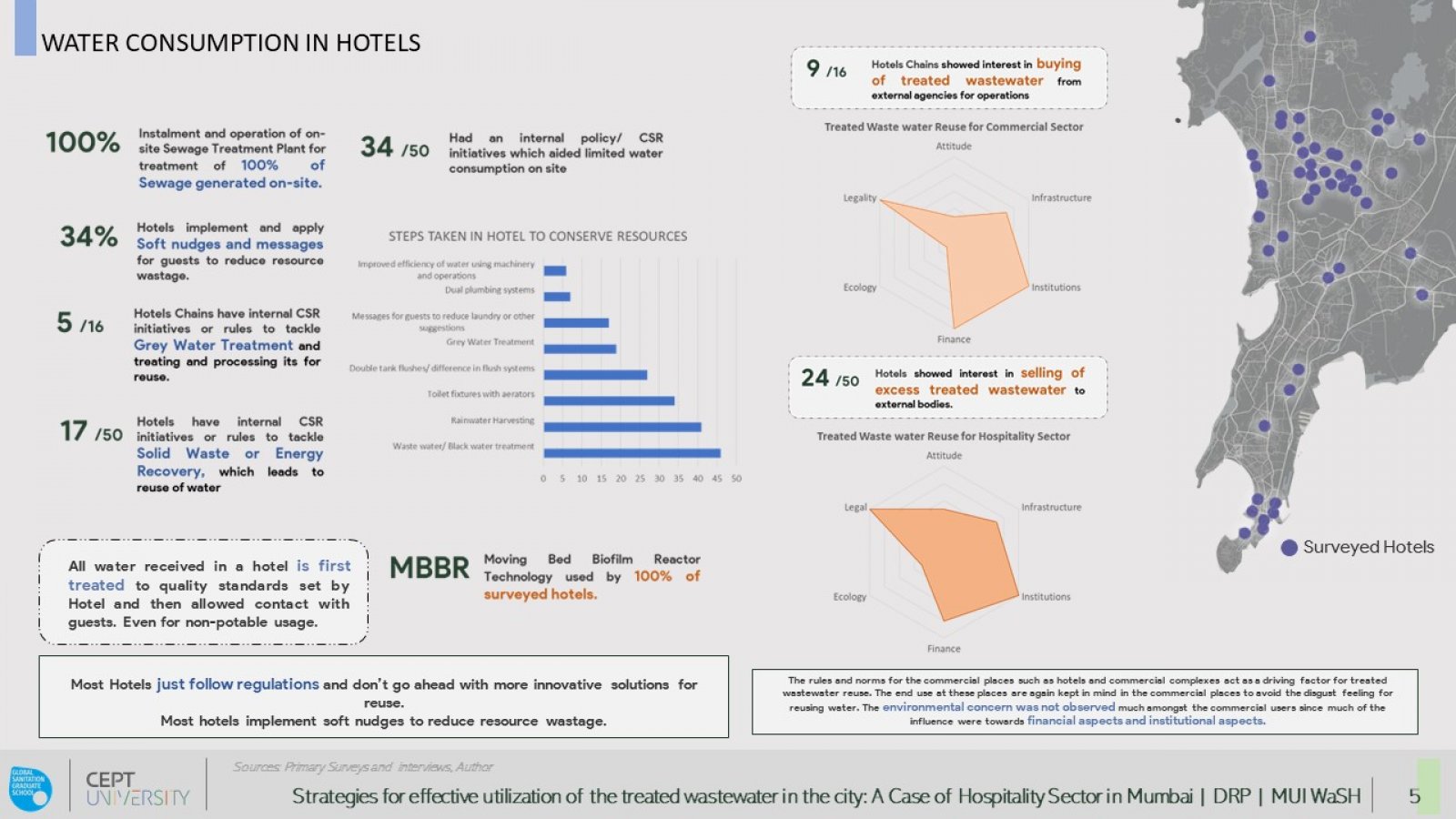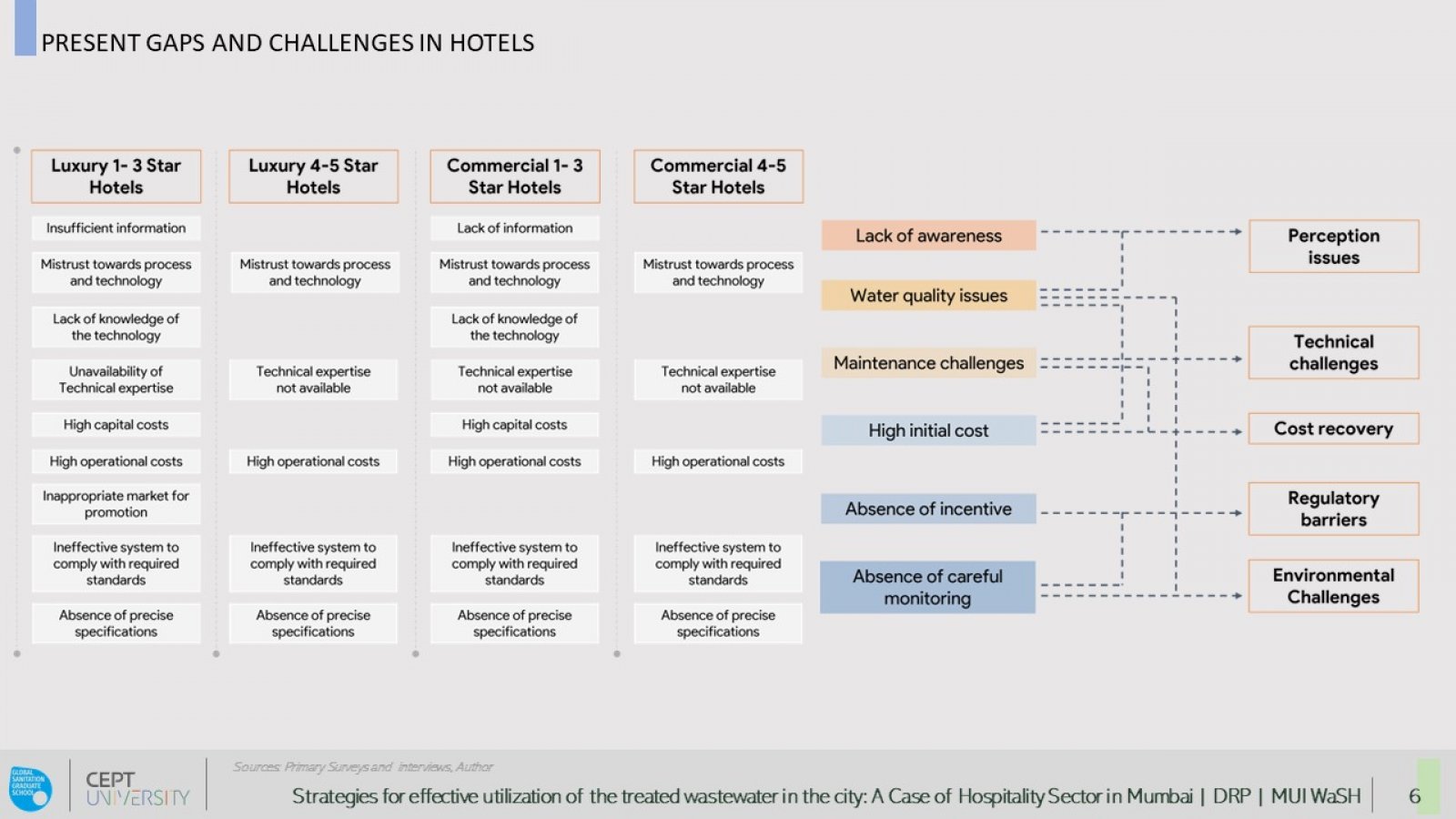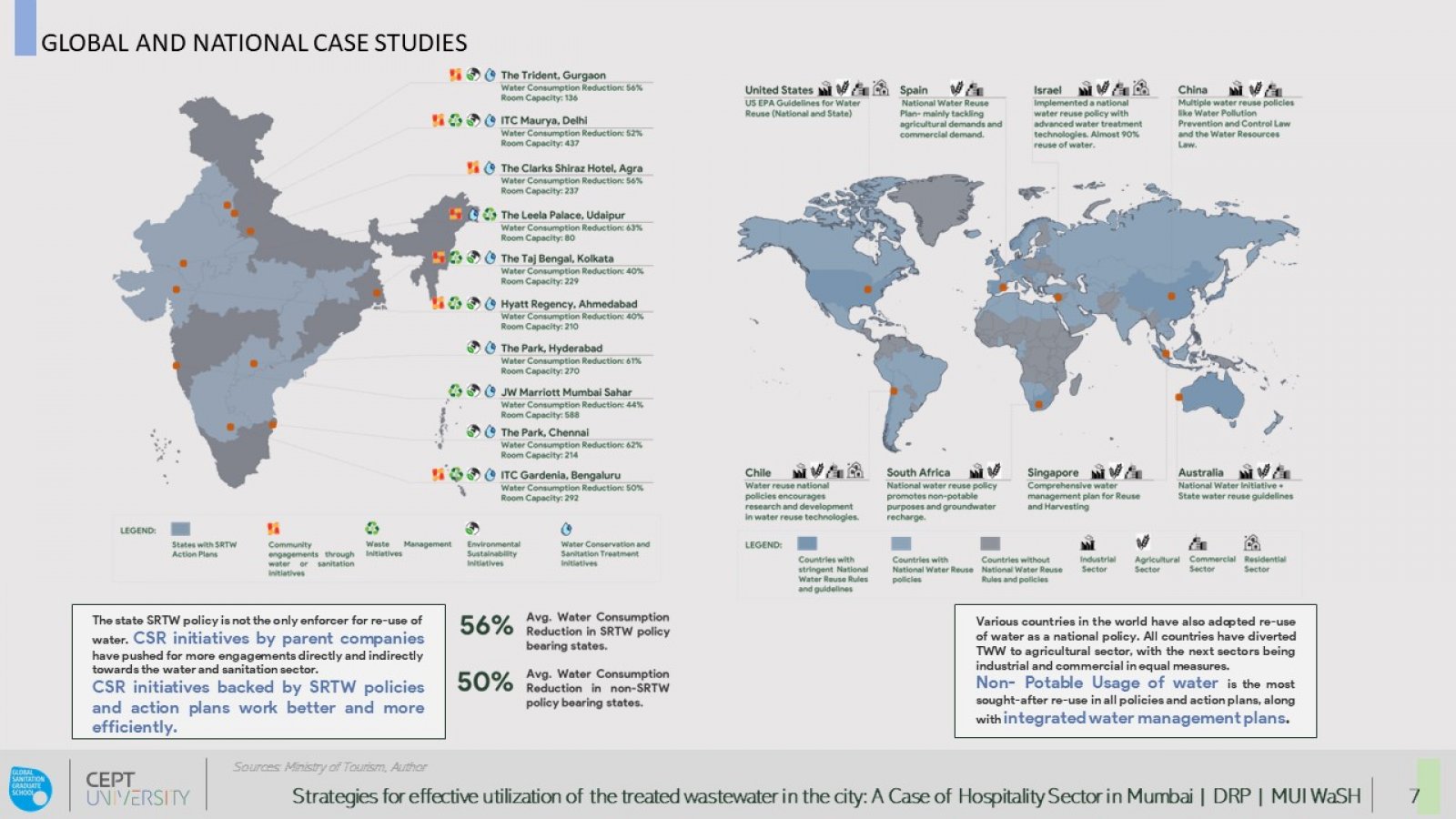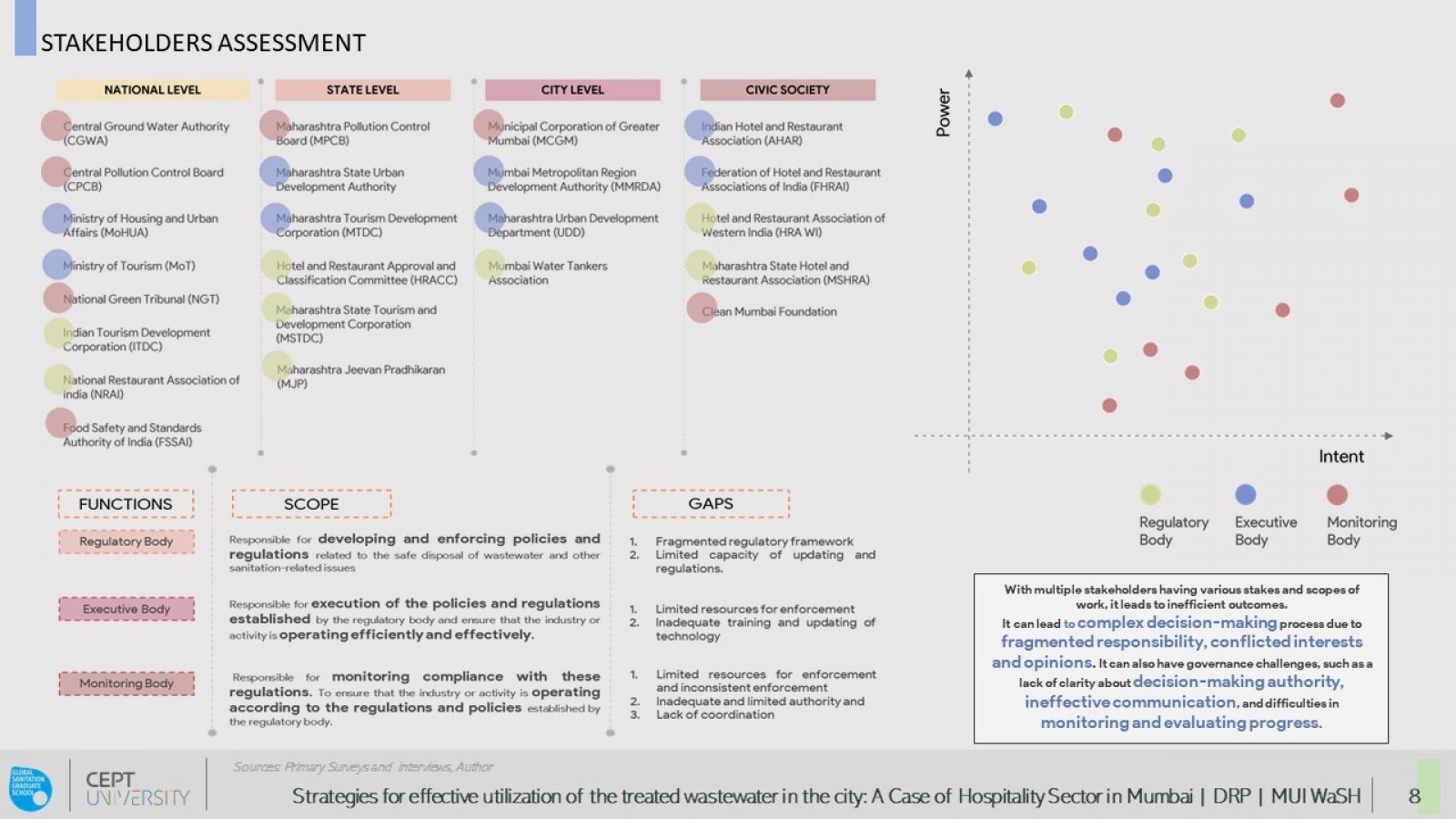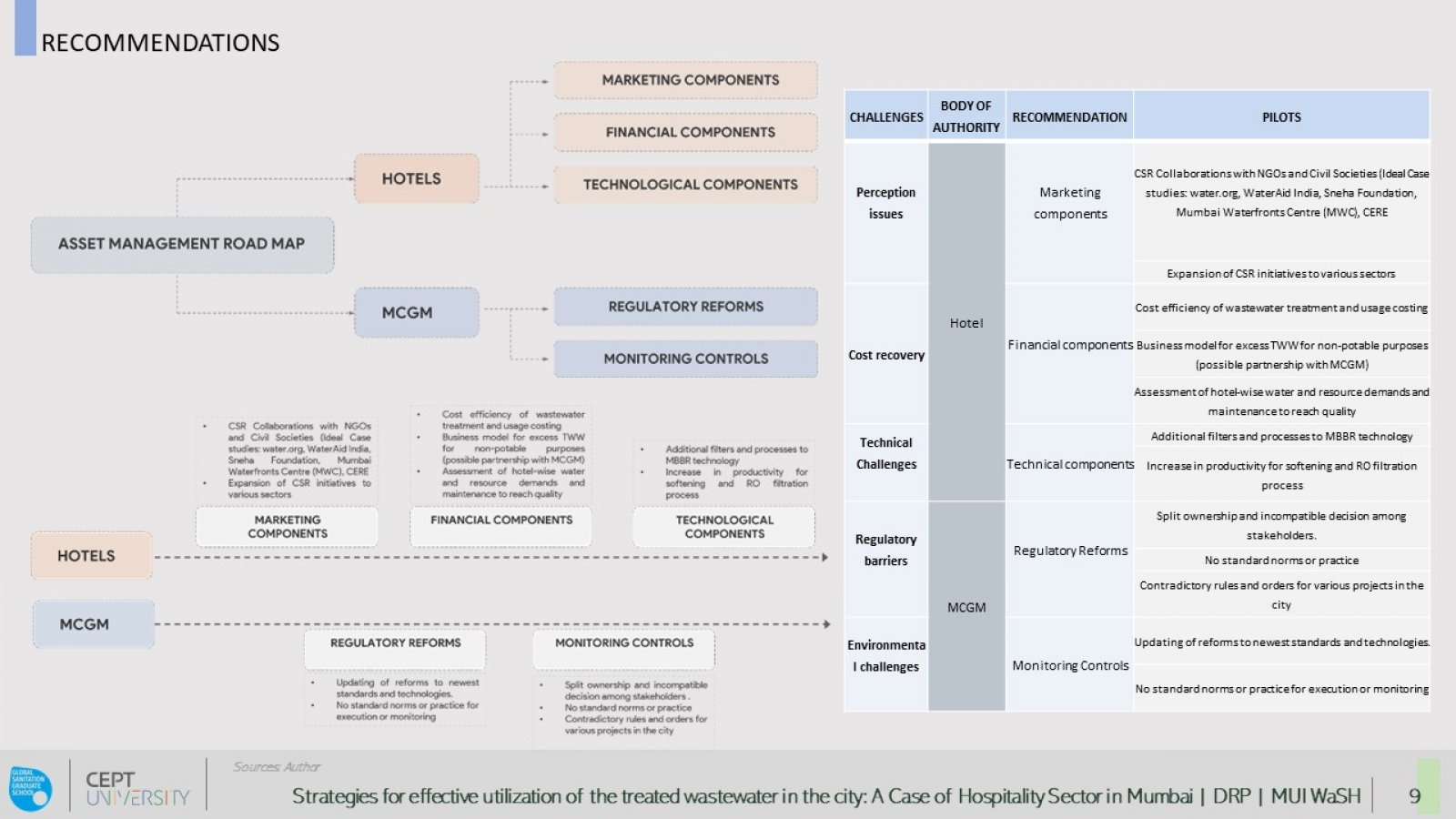Your browser is out-of-date!
For a richer surfing experience on our website, please update your browser. Update my browser now!
For a richer surfing experience on our website, please update your browser. Update my browser now!
Sustainability in water demand and water reuse is crucial, especially in the commercial sector of dense Urban India to address the challenges of water scarcity and pollution. By implementing sustainable water management practices, businesses can support the long-term sustainability of water resources and contribute to a more sustainable future for India. While numerous studies have been conducted to evaluate the case city of Mumbai’s challenges related to urbanisation, water scarcity and pollution, environmental implications, and impacts on tourism, there is still a need for improvement in the regions’ wastewater treatment, especially attached to the hotels, which are responsible for 18% of the city’s share in sanitation. With a direct impact of 7.7% of the country’s GDP and responsible for 1/10th of the jobs, tourism sector has received attention in central planning, and more than half of the Ministry of Tourism’s budget is channelised for funding the development of destinations and infrastructure projects.
The conventional strategy, which does not meet the demands of the said metropolis, catering to four times its living population, is what drives the rationale for the research along with the future goals of expansion of the tourism sector in the city driven by the state and central governments.
The research and study is aimed to understand the sanitation and wastewater treatment processes, re-use practises and strategies and challenges in the context of commercial sector in the city of Mumbai. For the sake of the study, the scope of the study was limited to million plus cities and commercial sector with an emphasis on hospitality sector, to tackle the transit accommodations of Mumbai.
A structured diagnostic evaluation with a qualitative lens is used to examine the sanitation practises of the city and the hotel premises in their treatment and disposal stages. Following this, 50 hotels were selected through purposive sampling and surveyed and studied in a structured and focused format, which served as 13.6% of the total sample (365) considered in the functional hotels in Mumbai. Additionally, the Corporate Social Responsibility practised by the hotels and their management chains were also studied and identified.
The existing and identified gaps in the resources were examined, from the collected data, from which we focus over proposing the strategies for the issues identified after incorporating the learnings form case studies and interviews to strengthen the implementation of policy environment related to the wastewater management. Stemming from State Water management and re-use policies to monitoring frameworks in place, multiple institutional regulation is worked upon. Additionally, the support of the private sector and their Corporate Social Responsibilities are explored.
